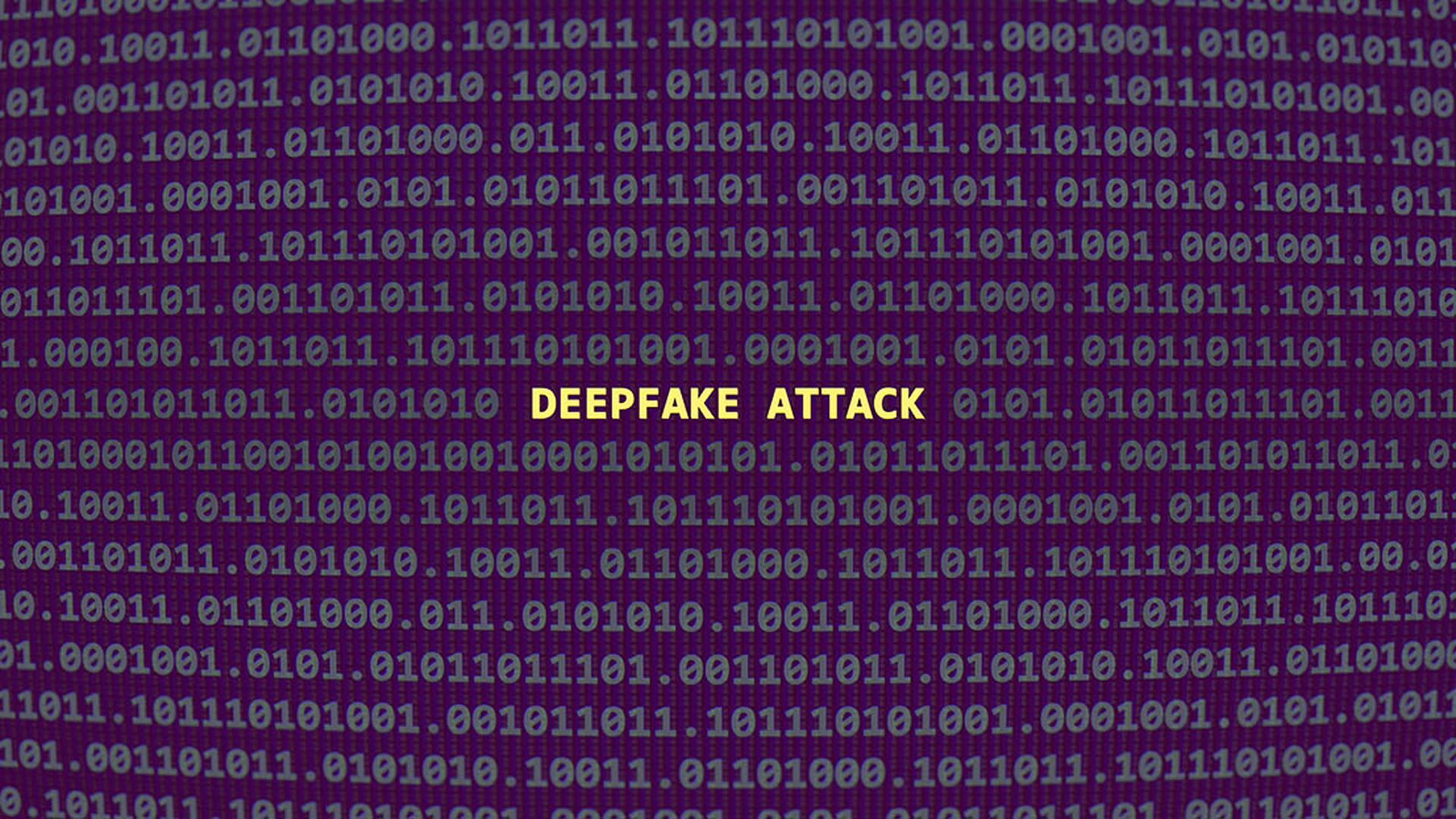Deepfake technology has taken the world by storm, and the Kpop industry is no exception. From viral videos to AI-generated performances, the impact of deepfake on Kpop is undeniable. But is it a groundbreaking innovation or a threat to authenticity? Let’s dive into the world of Kpop deepfake and uncover the truth behind this digital phenomenon!
Imagine your favorite Kpop idol performing a song that was never released or even dancing in a style that defies reality. That’s the power of deepfake technology. It’s like having a time machine for creativity, but with a twist. Deepfake allows fans to explore new possibilities, but it also raises serious ethical questions about consent, privacy, and the future of entertainment.
Whether you’re a die-hard Kpop fan or just curious about the tech behind deepfake, this article will give you the full scoop. We’ll explore the ins and outs of Kpop deepfake, its benefits, risks, and everything in between. So, buckle up and get ready to explore the wild world of AI in the music industry!
Read also:Kayla Simmons Onlyfans Content The Story Behind The Leaked Drama
What is Kpop Deepfake Anyway?
Kpop deepfake refers to the use of artificial intelligence to create realistic but fake videos or images of Kpop idols. This technology can make it look like your favorite idols are doing things they’ve never actually done. Think of it as digital magic that blurs the line between reality and fiction. But how does it work? And why is it so popular?
Deepfake uses machine learning algorithms to analyze thousands of images and videos of a person. The AI then generates new content that mimics their appearance, voice, and movements. In the Kpop world, this means fans can create videos of idols performing new songs, dancing in unique styles, or even interacting with fans in ways that feel real.
While deepfake might sound like a futuristic concept, it’s already here and making waves. Fans love it because it lets them experience their idols in ways they never could before. However, not everyone is on board with this trend. Some argue that deepfake undermines the authenticity of Kpop and raises concerns about misuse.
The Rise of Deepfake in Kpop
Deepfake technology has been around for a while, but its popularity in the Kpop scene skyrocketed in recent years. Why? Because Kpop fans are some of the most creative and tech-savvy people on the planet. They’ve embraced deepfake as a tool for fan art, music videos, and even virtual concerts. But it’s not just fans who are using it. Some Kpop agencies have started experimenting with deepfake for promotional purposes.
One of the reasons deepfake resonates so well with Kpop fans is its ability to bring idols closer to their audience. Imagine seeing your favorite idol performing a song in your hometown or even interacting with you personally. Deepfake makes these fantasies possible, albeit digitally. It’s like having a front-row seat to a concert that never happened.
Why Kpop Fans Love Deepfake
Fans are the driving force behind the deepfake trend in Kpop. Here are some reasons why they’re obsessed with it:
Read also:Cheeky Kim Onlyfans The Ultimate Guide To Her Journey Content And Success
- It allows them to create content that feels personal and unique.
- Deepfake videos can bring back memories of idols from past performances or even deceased artists.
- It’s a way to explore new creative possibilities and push the boundaries of what’s possible in music.
- For many fans, deepfake is a form of self-expression and a way to connect with their favorite idols.
However, not all fans are using deepfake for fun. Some are using it to create controversial or even harmful content. This is where the ethical concerns come into play.
The Dark Side of Kpop Deepfake
While deepfake has its merits, it’s not without its downsides. One of the biggest concerns is the potential for misuse. Deepfake can be used to create fake news, spread misinformation, or even harm the reputation of Kpop idols. Imagine a fake video of an idol saying something controversial or engaging in inappropriate behavior. The consequences could be devastating for their career and mental health.
Another issue is consent. Many deepfake creators use images and videos of idols without their permission. This raises questions about privacy and ownership of one’s digital identity. Kpop idols are already under immense pressure to maintain a perfect image, and deepfake only adds to that burden.
Some experts argue that deepfake could lead to a loss of trust in media. If people can’t tell what’s real and what’s fake, how can they trust anything they see online? This is a serious concern for the Kpop industry, which relies heavily on digital platforms for promotion and engagement.
How Kpop Agencies Are Responding
Kpop agencies are starting to take notice of the deepfake trend and its potential risks. Some have issued warnings against unauthorized use of their artists’ images, while others are exploring ways to use deepfake responsibly. For example, some agencies are using AI to create virtual performances for fans who can’t attend concerts in person.
However, the challenge lies in finding a balance between creativity and ethics. How can agencies encourage fans to use deepfake responsibly while protecting their artists from harm? It’s a tricky question that requires careful consideration and collaboration between fans, agencies, and tech companies.
The Future of Kpop Deepfake
So, where is Kpop deepfake headed? Will it become a mainstream part of the industry, or will it remain a niche trend among fans? The answer depends on how the technology evolves and how it’s regulated. One thing is certain: deepfake is here to stay, and its impact on Kpop will only grow in the coming years.
Some experts predict that deepfake will revolutionize the way we consume music. Imagine attending a virtual concert where your favorite idols perform live from different parts of the world. Or picture a world where fans can interact with AI-generated versions of their idols in real-time. These possibilities might sound like science fiction, but they’re closer to reality than you think.
Predictions for the Next Decade
Here are some predictions for the future of Kpop deepfake:
- More agencies will embrace deepfake for promotional purposes, such as virtual concerts and fan meetups.
- Regulations will be put in place to protect the privacy and consent of Kpop idols.
- Fans will continue to push the boundaries of creativity, using deepfake to create unique and engaging content.
- Deepfake technology will become more advanced, making it harder to distinguish between real and fake content.
While the future of Kpop deepfake is uncertain, one thing is clear: it’s a powerful tool that has the potential to transform the industry in ways we can’t yet imagine.
Benefits of Kpop Deepfake
Despite its controversies, deepfake has several benefits for the Kpop industry. Here are some of the most notable ones:
- Creative Expression: Deepfake allows fans to express their creativity and passion for Kpop in new and exciting ways.
- Global Reach: Virtual performances and fan interactions can help Kpop idols reach audiences in remote or underserved areas.
- Revival of Legacy Artists: Deepfake can bring back beloved idols from the past, allowing new generations of fans to experience their music and performances.
- Cost-Effective: AI-generated content can save agencies money on production costs while still delivering high-quality results.
While these benefits are undeniable, they must be weighed against the potential risks and ethical concerns. It’s a delicate balance that requires careful consideration and planning.
How Deepfake Can Enhance Kpop Performances
One of the most exciting applications of deepfake in Kpop is its ability to enhance live performances. Imagine a concert where idols can perform multiple songs at once, thanks to AI-generated avatars. Or picture a world where fans can interact with their favorite idols in real-time, even if they’re on opposite sides of the globe. These possibilities could revolutionize the concert experience and make it more accessible to fans worldwide.
Challenges and Ethical Concerns
As with any new technology, deepfake comes with its fair share of challenges and ethical concerns. Here are some of the most pressing ones:
- Consent: How can we ensure that idols’ images and voices are used with their permission?
- Authenticity: How can we distinguish between real and fake content in a world where deepfake is becoming increasingly sophisticated?
- Reputation Management: How can idols protect their reputation from fake content that could harm their careers?
- Legal Implications: What laws and regulations are needed to govern the use of deepfake technology in the Kpop industry?
These questions are complex and require collaboration between fans, agencies, and policymakers to find solutions that work for everyone involved.
How Fans Can Use Deepfake Responsibly
For fans who want to use deepfake responsibly, here are some tips:
- Always seek permission from idols or their agencies before using their images or voices.
- Be mindful of the content you create and its potential impact on others.
- Use deepfake for positive and constructive purposes, such as fan art or virtual performances.
- Stay informed about the latest developments in deepfake technology and its ethical implications.
By following these guidelines, fans can help ensure that deepfake remains a positive force in the Kpop industry.
Expert Opinions on Kpop Deepfake
To get a better understanding of the impact of deepfake on Kpop, we spoke with several experts in the field. Here’s what they had to say:
“Deepfake is a double-edged sword,” says Dr. Jane Doe, a professor of media studies. “On one hand, it offers endless possibilities for creativity and innovation. On the other hand, it poses serious ethical and legal challenges that need to be addressed.”
“As an AI researcher, I believe deepfake has the potential to transform the music industry,” adds John Smith, a tech analyst. “But we need to ensure that it’s used responsibly and ethically to protect the rights and privacy of artists.”
“As a Kpop fan, I love seeing what fans can create with deepfake,” says Sarah Lee, a fan community leader. “But I also worry about the potential misuse of the technology. We need to find a way to balance creativity with responsibility.”
Conclusion: Is Kpop Deepfake Worth the Risk?
In conclusion, Kpop deepfake is a powerful and transformative technology that offers both opportunities and challenges for the industry. While it allows fans to explore new creative possibilities and brings idols closer to their audience, it also raises serious ethical and legal concerns that need to be addressed.
So, is Kpop deepfake worth the risk? That depends on how it’s used and regulated. If fans, agencies, and policymakers can work together to ensure that deepfake is used responsibly and ethically, it could become a valuable tool for enhancing the Kpop experience. But if left unchecked, it could pose serious risks to the authenticity and integrity of the industry.
We encourage you to share your thoughts on Kpop deepfake in the comments below. Do you think it’s a positive trend or a dangerous one? Let’s keep the conversation going and work together to shape the future of Kpop!
Table of Contents


